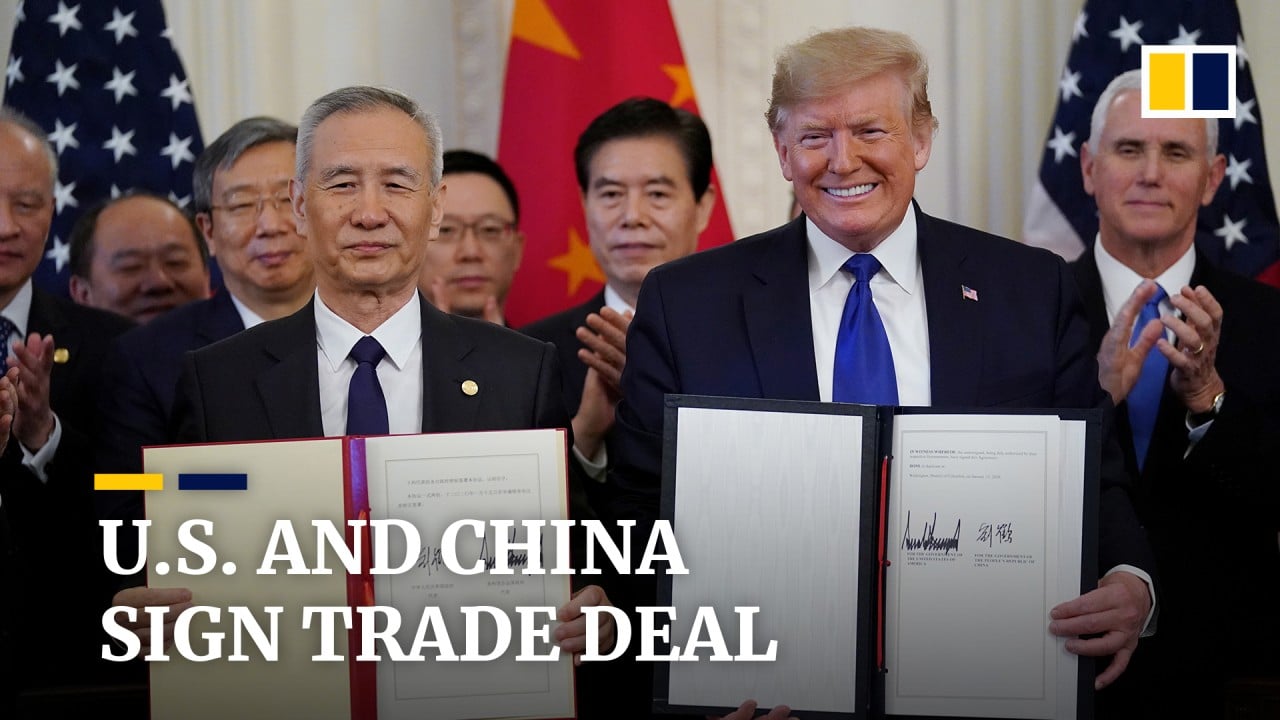China to revive IPOs in London to hedge against Wall St’s growing hostility, amid options aplenty for capital-hungry firms
- Beijing will resume vetting applications by Chinese companies looking to sell GDRs via the Shanghai-London Stock Connect
- London lags behind NYSE and Nasdaq, so it remains to be seen whether the strategy will be successful, investors say

China will push ahead with listings of domestic companies in London, as its seeks to move away from the United States as a major source of overseas fundraising amid an escalation in tensions between the world’s two largest economies.
In a revival of the virtually suspended cross-border investment programme, Beijing will resume vetting applications by Chinese companies looking to sell global depository receipts (GDR) on the London Stock Exchange (LSE) through a link with the Shanghai bourse, according to a source familiar with the matter. The review will start with applications that were made public earlier and then postponed, and the regulators might not grant many approvals initially, the source said.
Chinese policymakers are softening their stance on the Shanghai-London Stock Connect, which started in June 2019 and almost ground to a halt because of how the United Kingdom reacted to the anti-government protests in Hong Kong. The change of heart comes as Washington tries to hold Beijing accountable for the global outbreak of Covid-19 and moves to administer penalties through its financial markets. US President Donald Trump banned a federal pension fund from investing in Chinese companies last week, and the Nasdaq was reportedly set to roll out new rules that would make it more difficult for Chinese companies to float initial public offering shares there.
“Allowing Chinese companies to sell shares in London can be viewed as a gesture by China further opening up its capital markets,” said Wu Kan, investment manager at Soochow Securities in Shanghai. “But London lags behind New York [Stock Exchange] and the Nasdaq in size, liquidity and convenience of trading. So it remains to be seen whether the strategy will be successful.”
Only a handful of Chinese companies currently trade on the LSE, ranging from little-known chemical firm G3 Exploration and China New Energy to Huatai Securities, the first to sell GDRs via the Shanghai-London link. On the other hand, the Nasdaq and NYSE are home to 196 Chinese companies, including technology giants JD.com, Baidu and South China Morning Post parent Alibaba Group Holding.
While the UK is the world’s fifth-largest stocks market, with a market cap of US$2.4 trillion, the US is its biggest, with capitalisation of US$30.3 trillion. In between lie markets in China, Japan and Hong Kong. A cut-off in financing from America will indeed be a setback for Chinese companies, particularly its hi-tech firms, which have relied on the New York bourses for easy and fast fundraising.
And while the US dollar-denominated GDRs of Huatai Securities, a mid-sized brokerage from the eastern city of Nanjing, have risen 22 per cent since listing in London in June – beating the underlying shares trading in Shanghai and Hong Kong in this period – trading interest in the stock remains low among UK investors. About 150,000 depository receipts have changed hands on average every day since their London debut, equalling about 2 per cent of the daily volume of the brokerage’s yuan-denominated shares on the Shanghai exchange.
The Shanghai-London Stock Connect has progressed slowly since its inception. While Huatai Securities is the sole Chinese stock London investors can access, the channel allowing Chinese traders to buy London-listed shares has not opened yet. China Pacific Insurance and SDIC Power Holdings, which were supposed to follow Huatai Securities in offering GDRs, shelved their plans citing market conditions.
In contrast, the stock connect between Shanghai and Hong Kong has been increasingly popular since its start in 2014, and has become the main avenue for foreign traders investing in China’s burgeoning economy.
“Hardly any Chinese big-name hi-tech companies are listed in London to stoke interest among local investors. Most are engaged in traditional industries,” said Wang Zheng, chief investment officer at Jingxi Investment Management in Shanghai. “On the other hand, Chinese hi-tech firms are more willing to go to the US, where they can enjoy higher valuations.”
While the US-China tensions give the LSE an edge when it comes to tapping listing resources in China, it faces increasing competition from Hong Kong, which has overhauled its listings rules to attract more technology companies and is considering amending trading practices such as cutting the period between IPO subscriptions and trading debuts.
Last year, the London bourse rejected a takeover bid by Hong Kong Exchanges and Clearing, which operates the city’s bourse, and said Shanghai was its preferred partner.
